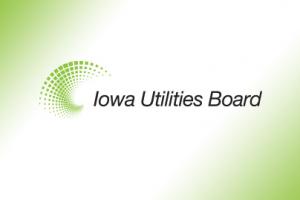Iowa Declines to Maintain Regulatory Oversight of Service Quality

The Iowa Utilities Board has decided that it will no longer exercise authority over service quality matters related to retail local exchange telecommunications services in the state. The deregulation pronouncement extends to nearly all customer service requirements, including specific performance and quality-of-service standards as well as terms and provisions governing discontinuations of service.
In finding that it was no longer necessary to oversee such service quality matters, the board said that a review of broadband availability in Iowa had revealed that approximately 97% of households in Iowa can be served by some form of non-mobile broadband service sufficient to support either typical voice communication service or Voice over Internet Protocol (VoIP). At the same time, however, the board left in place certain regulations pertaining to offerings with a broader public purpose, such as 911 calling and alternative operator services.
The board stated that it likewise would continue to address complaints regarding unauthorized changes in service, commonly referred to as "slamming." In addition, the board pointed out that under the state's telecommunications restructuring and consumer protection laws, it retains jurisdiction to hear individual customer complaints about service quality issues and carrier business practices.
Highlighting the fact that almost every Iowan now has a choice among local exchange service providers, the board commented that the instant proceeding is unlike prior dockets looking into the feasibility of deregulation. It conveyed that those earlier cases had been marked by individual carrier proposals for elimination of rate regulation in certain targeted exchange areas deemed subject to effective competition. But now, the board said, a detailed geographic analysis of the options in each exchange or each part of each census block is no longer required, since it is well-documented that the vast majority of Iowans have a choice of carrier.
Moreover, the board cited surveys indicating that most Iowans consider wireless service to be an adequate, and even preferable, alternative to landline local exchange service. According to the board, more than half of all consumers in the state, some 54%, have cancelled wireline service and rely solely on wireless service. That is in stark contrast to the mere 4.6% of Iowans who take only wireline service. The board also drew attention to the fact that VoIP and other alternatives have made significant inroads on incumbent local exchange carrier market shares.
As such, the board remarked, there is "no question that local exchange voice communication service is generally subject to effective competition" on a statewide basis. Such declarations notwithstanding, the board acknowledged that there likely are a few areas in the state where competition is not so robust. It identified those locales as mostly rural locations, where widely dispersed customers tend to mean that potential revenues from serving the area are less likely to justify the cost of constructing (or maintaining) the necessary facilities.
The board nonetheless concluded that those isolated areas with less competition did not, by themselves, justify continuation of service quality regulation on a statewide basis. The board added that even the state's Office of Consumer Advocate had acknowledged that it is not necessary that 100% of customers have competitive choice to justify deregulation, especially when there are other ways to address the situation. The board explained that in a competitive marketplace, it is reasonable to expect that the many market participants will maintain service quality so as to assure an advantage over their rivals.
Still, the board deemed it crucial for protecting the overall public interest that it retain jurisdiction to hear and address customer complaints regarding the quality and availability of local exchange services. In particular, it found it imperative that it be able to continue to respond to and resolve complaints about slamming and cramming by competitive carriers. Re Deregulation of Local Exchange Services, Docket No. INU-2016-0001, Aug. 9, 2017 (Iowa U.B.).



